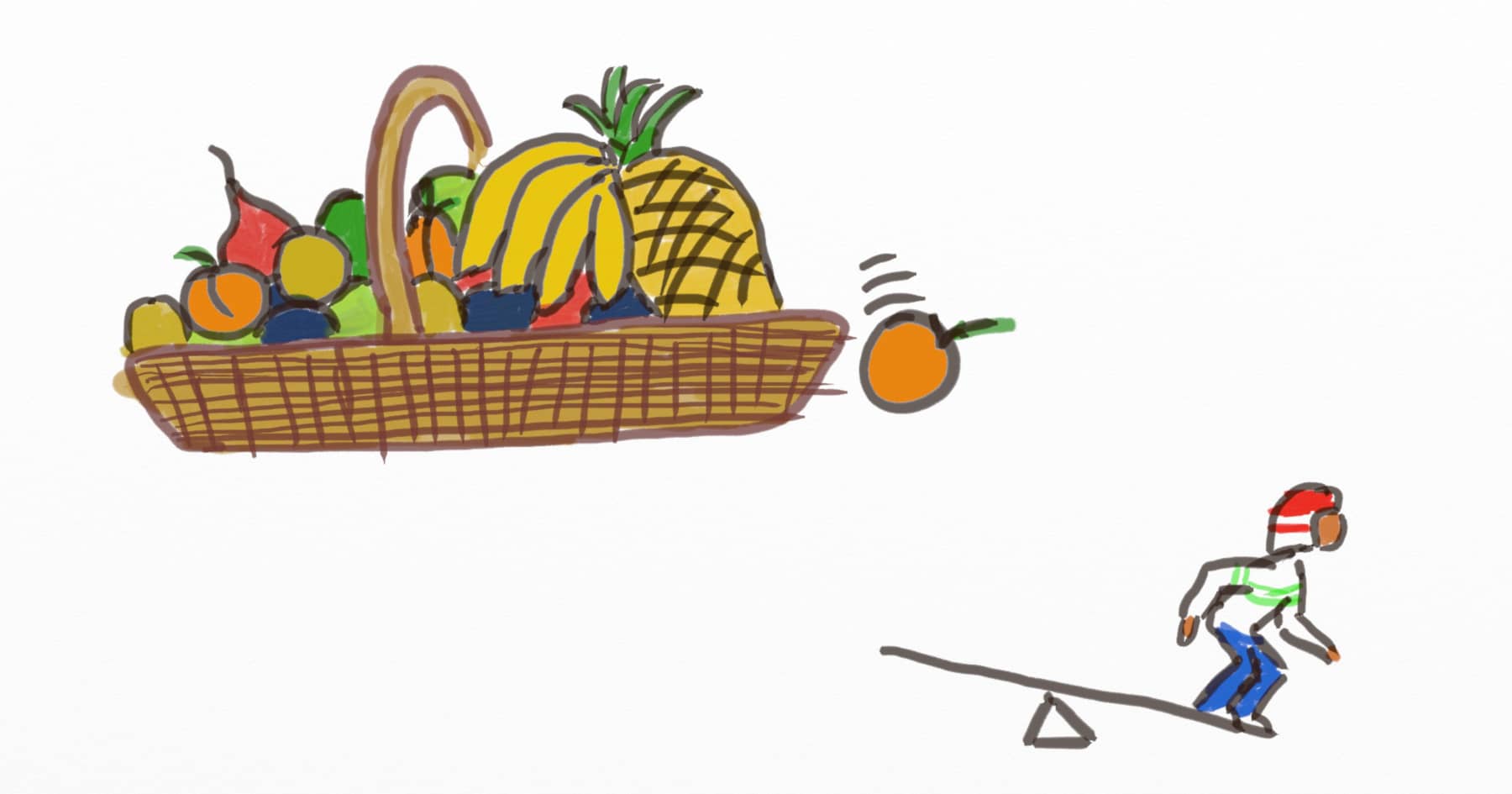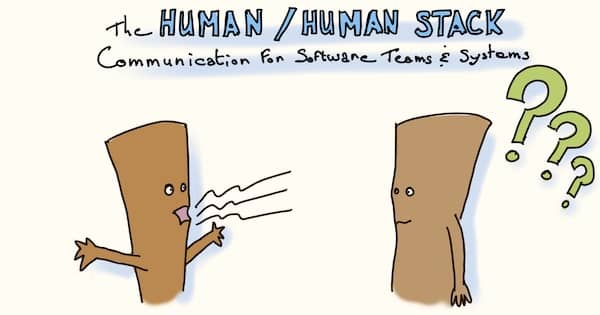The unexpected contributions to a productivity increase by 25% of a fruit basket at work
As software people, we live in a complex-system world. To leverage on its non-linear effects, we need to multiply weird experiments.
You might remember how we hacked up a weekly fruit basket in a previous team. The company would not provided us fruit baskets at work, so we decided to build our own. There’s a more interesting part to this story though. This fruit basket later contributed to increase productivity in unexpected ways!

A fruit basket at work
We initially invested 10€ to get started. Every week, one of us would buy some fruits, and sell them to teammates for 50c each. The sustainability of the process surprised us. After a few weeks, we got our money back and we were all eating fruits!
Exploratory testing
A few iterations later, we decide to perform regular exploratory testing sessions. The common belief is that developers make poor testers. Caring too much about their software, they stick to the happy path.
We used gamification to workaround this. We transformed exploratory testing into a bug competition. The pair that would discover the most bugs would become that week’s “best testers”. Money adds a bit of thrill to poker, and we decided to do the same. The “best testers” would win some free fruits. This turned out to be very effective. For the length of the session, we, developers, would transform in hardcore sadistic testers.
Improvement kata
Fast forward a few iterations again. We were feeling that we were somehow wasting some time, but could not understand where. Our retrospectives were not as effective as they used to be, so we tried our first improvement kata. Thanks to this kata, we discovered that we were losing a lot of time fixing bugs. To know where we stood, we had to measure how many bugs remained. Again, we used these time-boxed, fruit-powered exploratory testing sessions. Long story short, the improvement kata brought two improvements:
- We defined, without ambiguity, what a bug was
- We stuck to a #zeroBugs policy.
After a few weeks, we had almost eliminated bug fixing. We used to spend around 25% of our time on bugs. By slashing bug fixing time, we had increased productivity by 25%. The fruit basket played a surprising role in this productivity increase!
Costs and Benefits summary
Let’s start with the benefits
- As people asked for a fruit basket at work during retrospective, we can assume that it made them happier
- Studies have shown that happy people are also more productive
- Eating fruits instead of biscuits or other food made people healthier
- Exploratory testing increased the quality of our software
- The #zeroBugs approach increased the software quality even further
- Thanks to the improvement kata, we increased productivity by 25%
What about the costs?
- We invested 10€ for the fruits that we got back a few weeks later
- Someone would spend 30 minutes every week for the fruits (shopping, washing, accounting)
- Not much else, as the rest was already part of our “Business As Usual” work
Non-Linear and Unpredictable!

Sure, the fruit basket was only a catalyst in continuous improvement. Still, 25% productivity boost for 30 minutes per week was a great deal! If we had had to ask for the permission to our manager up-front, he would not have given it. From a pure money perspective, who would blame him though? There was no way we could have guessed that a fruit basket would help us to reach a #zeroBugs policy!
💡 25% productivity boost for 30 minutes of weekly fruit management!?!
There’s more though! The more we dig, the more interesting the story gets… The company did not provide free fruit baskets at the time. If it had, gamification would have been more difficult. Exploratory testing and improvement kata would not have worked so well either. Nowadays though, most of us believe that free fruits at work are good for happiness and productivity…
💡 In a complex world, nothing is straightforward. Things only appear to make sense after the fact.
More than ever, eXtreme Programming’s mantra of “Embracing Change” makes sense. In practice, it means we should leave a lot of place for experimentation and adaptation. Benefits are non-linear and small improvements can be game changing.




Leave a comment